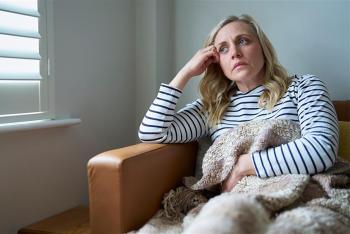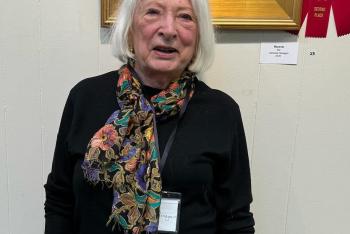Long COVID refers to a range of persistent symptoms that can linger for weeks, months or years after...
Read More

As we enter the winter months, the push to encourage our patients to get vaccinated against COVID-19 continues—but not without hurdles. While lymph node swelling is a common immune response to vaccination, many people have been concerned about how this occurrence could affect the results of their mammograms.
At first, we weren’t sure how lymph node swelling after a COVID-19 vaccination would affect our patients, but we’ve seen very little impact from the vaccines on mammogram results. And our board-certified, fellowship-trained radiologists are experienced at examining images of lymph nodes that could be swollen for a number of reasons—from cancer to the common cold and vaccines. Here’s what you should know about the vaccine and mammograms, and how to talk to your patients who might have concerns.
Inspira recommends annual mammograms starting at age 40 for those with an average risk for breast cancer. Getting screened on a regular basis means catching any abnormalities early. “Early detection can save lives,” said Allison Lawyer, M.D., chief radiologist of Mammography at Inspira Health Medical Imaging. “The earlier we catch breast cancer, the easier it is to treat. So it’s essential to communicate the importance of regular mammograms with your patients.”
Some people who receive the COVID-19 vaccine develop swollen lymph nodes under the same arm that was injected. Swollen lymph nodes are a fairly common immune response to any vaccination and they usually return to normal within a few days or weeks.
“It’s very rare that we’ve actually seen a measurable effect on a mammogram in relation to the COVID-19 vaccine,” said Dr. Lawyer. “But every now and then a patient will present with changes in their lymph nodes and we’ll want to check for an occult breast cancer that we might be missing.” If there are swollen lymph nodes found during a mammogram, the radiologist may suggest a follow-up appointment for additional diagnostic imaging—either another mammogram or an ultrasound to get a better look at what might be causing the symptoms.
If your patients already have an appointment to get vaccinated against COVID-19, you can encourage them to schedule their screening mammograms before the first dose or at least four weeks after the second dose. However, they shouldn’t cancel their mammogram appointment if it’s already set, especially if they’re overdue for screening. Both vaccination and mammograms are important tools in keeping us healthy and safe.
On the day of their mammogram, those who have been recently vaccinated should tell their technologist when they received the vaccine and in which arm it was given.
To refer a patient for a screening mammogram call 1-800-INSPIRA.

Long COVID refers to a range of persistent symptoms that can linger for weeks, months or years after...
Read More
For 81-year-old artist Bonnie Flanagan, an overall assessment of her health, which included a self...
Read More
Uncover the hidden connections between your family's past and your future well-being as we delve...
Read More
The material set forth in this site in no way seeks to diagnose or treat illness or to serve as a substitute for professional medical care. Please speak with your health care provider if you have a health concern or if you are considering adopting any exercise program or dietary guidelines. For permission to reprint any portion of this website or to be removed from a notification list, please contact us at (856) 537-6772